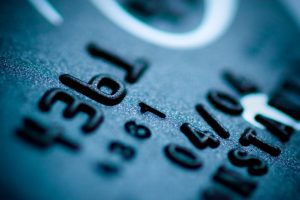One of the most common questions we are asked in our bankruptcy practice is about how filing will affect credit. The truth is in the vast majority cases bankruptcy filing improves a person’s credit. The filing stops ongoing negative reporting for old delinquent debts and provides a starting point to help you start to re-establish credit.
The fact that you filed bankruptcy may appear on your credit reports for up to ten years, but with the help of an experienced bankruptcy attorney, your credit can recover much quicker. There are several things you can do after bankruptcy that can improve your credit score and start you on the road to financial recovery.
Some ways to establishing credit after bankruptcy:
Get a secured credit card
- After your bankruptcy is final, it is important to work towards re-establishing credit. This can be done easily by working with a local bank or credit union and receiving a secured credit card. This type of credit card is secured because the applicant gives the bank money to hold and the bank then allows a credit limit equal to that amount. For instance, the applicant would put $800 in the bank if he/she wanted an $800 credit limit. Be cautious when setting up a secured account when it comes to upfront fees. Also, make sure that the secured credit card that you choose reports to the credit reporting agencies, some do not. Make small charges and pay them timely.
Get a unsecured card
- You may be surprised, but you may receive many offers from credit card companies after your bankruptcy. An unsecured credit card means that you do not have to pay anything upfront to the lender, but you also want to watch for any fees. Remember to pay off your balance in full each month to improve your credit.
Take out a loan
- Loans can be either secured or unsecured and are very similar to credit cards in procedure. A vehicle loan with a bank or credit union is great ways to re-establish credit.
With both secured and unsecured credit cards and loans, find out if the lender reports your credit card activity to the three credit card bureaus (Experian, Equifax, and TransUnion) so that making timely payments will improve your credit score.
What to avoid:
Don’t apply to retail cards first
- Because most of the credit cards offered by department stores and gas stations are handled by the small group of major lenders, you may already be in the system regarding your bankruptcy. The negative inquiry will damage your credit.
Stay away from finance companies
- Finance companies will often offer you high-interest, high-fee loans or credit cards after your bankruptcy. These are not as helpful as those from a local bank or credit union on your credit score.
It is important to remember that making timely payments on debt is one of the most important factors in rebuilding your credit. It is important to have an experienced bankruptcy attorney on your side to get you relief from old problematic debt so that you can work on making your credit better in the future.
Please feel free to call us now at 317-759-1483 or send us an email to schedule a free consultation with an attorney to review your personal situation.
About the Attorneys
Andrew Sawin received his Bachelor of Arts degree from Indiana University in 1989 and his Doctor of Jurisprudence from Indiana University School of Law – Indianapolis in 1995. He has concentrated his practice in the field of Consumer Bankruptcy for the past 15 years.
Richard Shea graduated from California State Polytechnic University, Pomona with a Bachelor of Science degree in Hotel & Restaurant Management in 1995 and received his Doctor of Jurisprudence from Indiana University School in 1998.



